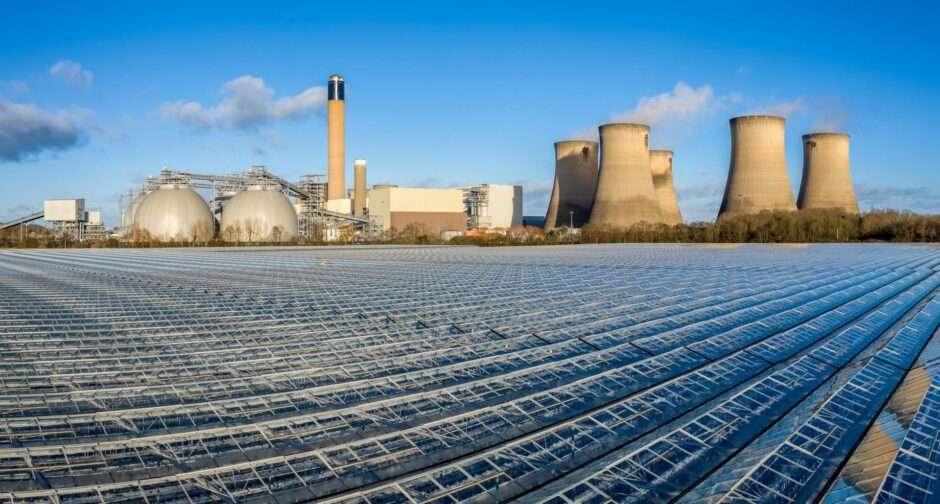
A move to a decarbonised energy system by 2050 is likely to save at least $12 trillion compared to continued use of fossil fuels, according to a study published by Oxford University researchers.
The peer-reviewed paper, published in the journal Joule, describes a “win-win scenario” in which a rapid transition to an entirely clean energy system results in lower system costs than one based on fossil fuels.
The study considers three transition scenarios covering ‘no’, ‘slow’ (2070) and ‘fast’ (2050) transitions.
In its fast scenario, building a “fossil-free energy system” by around 2050 could provide 55% more energy services globally than today the researchers said, via a ramp up of solar, wind, batteries, electric vehicles and clean fuels such as green hydrogen.
At the same time, the annual system cost of the fast scenario is estimated to be up to $540 billion cheaper than that with ‘no transition’.
“There is a pervasive misconception that switching to clean, green energy will be painful, costly and mean sacrifices for us all – but that’s just wrong,” said Professor Doyne Farmer, who leads the team that conducted the study at the Institute for New Economic Thinking at the Oxford Martin School.
“Completely replacing fossil fuels with clean energy by 2050 will save us trillions.”
Professor Farmer said clean alternatives are already cheaper than fossil fuels in many situations, and will become more so across “almost all applications” in the coming years.
The team’s analysis is based on a combination of thousands of transition cost scenarios produced by major energy models, using cost data from 45 years of solar energy, 37 years of wind energy and 25 years for battery storage.
Researchers pointed to technology improvement rates as high as 40-50% per year, and noted that the real cost of solar energy dropped twice as fast as the most ambitious historic projections. They therefore suggest the last 20 years of modelling has “badly overestimated” the future costs of renewable energy technologies versus their real-life deployment.
Meanwhile, while they anticipate the cost of this new infrastructure would be “substantial” they expect this to be more than offset by lower energy costs. In turn, access to cheaper energy may greater greater global uptake than the historic 2% per year energy growth rate.
While it was conducted before Russia’s invasion of Ukraine – and its corresponding effect on commodity prices – the authors say the paper also takes account of such price fluctuations by using more than 100 years of fossil fuel price data.
Nevertheless, researchers report using “consistently conservative” assumptions regarding the cost, performance, and operational requirements of clean energy technologies, while doing the opposite for incumbent fossil fuels.
Added Professor Farmer: “The world is facing a simultaneous inflation crisis, national security crisis, and climate crisis, all caused by our dependence on high cost, insecure, polluting, fossil fuels with volatile prices.
“This study shows ambitious policies to accelerate dramatically the transition to a clean energy future, as quickly as possible, are not only urgently needed for climate reasons, but can save the world trillions in future energy costs, giving us a cleaner, cheaper, more energy secure future.”
The analysis showed similarly promising cost reductions for energy storage technologies such as batteries and hydrogen electrolysis.
However, they found that the costs of nuclear have consistently increased over the last five decades, and find it “highly unlikely” that the technology will be cost competitive as renewable and energy storage costs fall even further.
Lead author and postdoctoral researcher at the Smith School of Enterprise and the Environment, Rupert Way, added: “Past models predicting high costs for transitioning to zero carbon energy have deterred companies from investing, and made governments nervous about setting policies that will accelerate the energy transition and cut reliance on fossil fuels. But clean energy costs have fallen sharply over the last decade, much faster than those models expected.”
“Our latest research shows scaling-up key green technologies will continue to drive their costs down, and the faster we go, the more we will save. Accelerating the transition to renewable energy is now the best bet, not just for the planet, but for energy costs too.”
